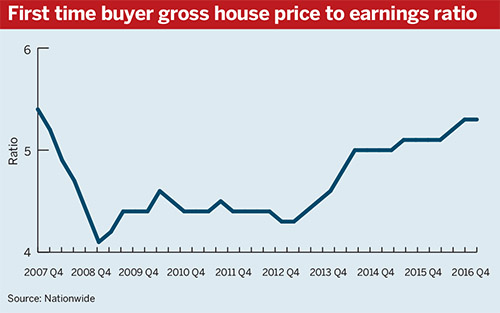From the blog: With soaring house prices preventing more and more people from owning their own home, future generations may be less likely to be able to supplement their retirement income through property, meaning workplace pensions are becoming more important than ever.
Last month’s government housing white paper highlighted the fact that an average home now costs almost eight times the average earnings, and the additional demand for property investing is pushing prices up further. Given that not enough homes are being built, this housing shortage is set to get worse.
Putting property towards pension savings
So what does this mean for property owners hoping to downsize or relocate to a cheaper area to help fund their retirement?
Property has become a major player in the retirement savings landscape. Research conducted by mastertrust Now Pensions shows nearly 40 per cent of homeowners think their housing wealth will be a major factor in funding their retirement.
And when making up for a lack of pension savings, 63 per cent of homeowners would prefer to move to a smaller property or cheaper location over taking in a lodger or remortgaging.
But Now Pensions has said the UK’s lack of housing could mean there is a limit to cheap and suitable homes retired people will want to live in.
More housing needed for older people
“What needs to be built, and what the [government housing white] paper fails to address, is appropriate homes for the retired community,” said Adrian Boulding, director of policy at Now Pensions.
For those in need of retirement funding but reluctant to move house, equity release, which involves unlocking tax-free cash from the value of your property, is an alternative option.
 This strategy is well-known for the potential risks involved, including the high interest to pay, which can affect how much the next generation inherits.
This strategy is well-known for the potential risks involved, including the high interest to pay, which can affect how much the next generation inherits.
It suits some people more than others, for example those who prefer to retain the family home and enjoy it in the short-term, particularly if some or none of their children have yet to fly the nest.
While those lucky enough to own their homes can make these types of decisions, what about people who have little or no private pension savings and do not own a property?
The Council of Mortgage Lenders has predicted that by 2020 only a quarter of 30-year-olds will own their own home; in contrast, more than half of people currently approaching retirement were home-owners by the age of 30.
With fewer people being able to fall back on property to help fund their retirement, initiatives to increase coverage, contributions and consumer engagement, such as the government’s auto-enrolment review, are becoming more important than ever.
The most valuable recommendation is to start saving into a workplace pension as early as possible while budgeting for more than the monthly minimum contributions that have been projected so far.























